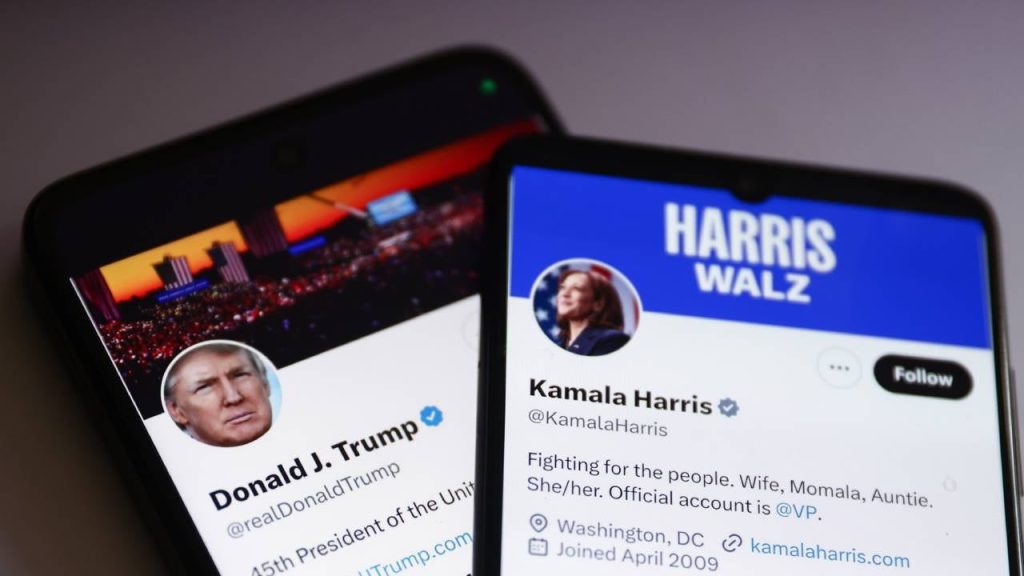Almost half of all corporate money contributed to this year’s federal election campaigns — yes, nearly half — has come from crypto backers, according to a recent report from the consumer advocacy group Public Citizen.
But what do these crypto supporters want, exactly? And where do presidential candidates Donald Trump and Kamala Harris stand on cryptocurrency and its still-murky regulatory future?
In this article, we break down both candidates’ stances, along with a look at how much money major crypto corporations have poured into political contributions this year — and what they’re hoping to achieve with that influence.
Crypto’s deep pockets in the 2024 election
Cryptocurrency — once hailed as a fad and the preferred form of payment for shadowy characters — has increasingly become mainstream. And its deep-pocketed loyalists are spending big to win influence in the 2024 elections.
Crypto corporations and wealthy investors have poured over $119 million directly into influencing federal elections, according to an Aug. 21 report from Public Citizen, a nonprofit progressive consumer rights advocacy group based in Washington, D.C.
That money is mostly being funneled into a non-partisan super PAC called Fairshake, which has amassed over $202 million during the 2023-2024 election cycle, with the aim of electing pro-crypto candidates and defeating crypto skeptics.
Crypto companies — primarily Coinbase and Ripple — are now the dominant corporate political spenders in 2024, according to the report, accounting for nearly half (48 percent) of all corporate money contributed during this year’s elections. In fact, since 2010, crypto corporations have been the second-biggest election-related spenders, trailing only fossil fuel corporations.
Cryptocurrency executives and advocates argue that tens of millions of people care about digital currency. Yet a survey by the Federal Reserve finds only about 7 percent of Americans held or used crypto in 2023.
Where the 2024 presidential candidates stand on cryptocurrency
With crypto lobbyists emerging as a major force in the 2024 election, both Trump and Harris face increasing pressure to define their positions on the issue.
Kamala Harris
Vice President Kamala Harris has yet to take an official position on cryptocurrency during her brief campaign as the Democratic nominee, reflecting the broader uncertainty within her party.
Democrats have some catching up to do with the crypto crowd, especially since the Biden administration has been seen by crypto backers as unfriendly to the industry.
The Security and Exchange Commission’s (SEC’s) crackdown on the industry began about two years ago, following the collapse of FTX, the world’s third-largest crypto exchange at the time. The SEC responded by hitting top crypto firms with a wave of lawsuits, accusing them of bypassing fundamental investor protections. Two of the highest-profile cases take aim at the world’s largest crypto exchange, Binance, and the biggest U.S.-based exchange, Coinbase.
The litigation follows several failed efforts by the SEC to restrict crypto’s wider adoption, including blocking the approval of Bitcoin ETFs, which a federal judge overruled in 2023, paving the way for the new funds to begin trading in January 2024.
But with big money and potential voters in swing states up for grabs, Democratic party leaders are working to improve relations with the crypto industry — even if their nominee has yet to take an official stance.
In July, 14 House Democrats penned a letter to the Democratic National Committee’s head, urging the party to embrace pro-crypto policies in its platform, according to Politico.
In mid-August, party officials jumped on a video call with the crypto industry to “reset” their relationship with the sector. The group of cryptocurrency advocates, dubbed Crypto4Harris, hosted a roughly 90-minute virtual town hall that featured a “Who’s Who” of Democratic lawmakers, aimed at deepening the link with the cryptocurrency industry.
The Crypto4Harris group is also planning nationwide grassroots fundraisers in September to rally support for Harris, according to Reuters.
Donald Trump
Former President Donald Trump, who once voiced skepticism about cryptocurrency, has repositioned himself as the pro-crypto presidential candidate.
In the summer of 2019, Trump criticized cryptocurrency on social media, claiming it could be used to facilitate illegal activities like drug trafficking. And during his presidency, the Trump administration’s regulatory actions included the SEC’s controversial lawsuit against Ripple.
But Trump changed his tune in 2024, aiming to win over a bloc of single-issue voters and — perhaps more crucially — big-ticket donors in the cryptocurrency world.
In July, at a major cryptocurrency conference in Nashville, Tennessee, Trump declared that he wants the U.S. to become the “crypto capital of the planet” and the Bitcoin “superpower of the world.”
Trump’s campaign now accepts Bitcoin donations, and it recently launched digital NFT trading cards depicting the former president dancing, wearing a superhero suit and holding Bitcoin, available for $99 on the Trump campaign website. His vice presidential running mate, Sen. J.D. Vance (R-Ohio), is also a longtime crypto advocate.
The Republican National Committee even mentions cryptocurrency in its official party platform, noting that Trump will defend the right to mine Bitcoin and “ensure every American has the right to self-custody of their Digital Assets, and transact free from Government Surveillance and Control.”
At the Bitcoin 2024 conference in Nashville, Trump detailed a set of crypto-friendly policies. He also claimed that Bitcoin’s price would soar under his administration.
Some of Trump’s crypto policy proposals include:
- Create a government stockpile of Bitcoin: During the conference, Trump noted that his administration would “keep 100 percent of all the Bitcoin the U.S. government currently holds or acquires into the future,” adding that the digital currency would act as the “core of the strategic national Bitcoin stockpile.” It’s estimated the U.S. government held more than $5 billion worth of Bitcoin as of October 2023, largely seized from criminal investigations. However, it’s unclear what the stockpile would be used for, whether it’s realistic or if it’s even welcomed by the broader crypto industry.
- Create a crypto advisory council: In Nashville, Trump proposed launching a group called the “Bitcoin and crypto presidential advisory council” which would have rules “written by people who love your industry, not hate your industry.”
- Block the Federal Reserve from creating its own digital currency: Central bank digital currencies, known as CBDCs, are a growing trend around the rest of the world, but the idea has received significant pushback from the U.S. cryptoverse. The Fed hasn’t decided whether to make a fully digital version of the U.S. dollar, though it did release a long-awaited report in January 2022 detailing the potential costs and benefits. Trump has spoken out against the idea multiple times in 2024, including at a January campaign rally in New Hampshire, where he called it a “dangerous threat to freedom.” In May, the House passed a bill that would bar the Federal Reserve from creating a CBDC, though the legislation has a long way to go before becoming law.
Bottom line
With millions of dollars at stake, cryptocurrency is a major factor in the 2024 election, influencing both presidential candidates and down-ballot races. While Trump has embraced the crypto crowd with big promises, Harris and the Democrats are playing catch-up. Crypto backers are pouring money into campaigns, aiming to shift regulations in their favor.
As both parties eye the massive cash flow, the battle over crypto regulation is heating up, making it a key issue to watch in the final weeks leading up to the election.
Read the full article here










